Listening to the Movement: New Growth and New Challenges in Restorative Justice
From the Foreword by Fania E. Davis
“A new pattern has emerged within the restorative justice community over the last years; many now view restorative justice as both an intervention to transform individuals and a movement to transform society. This emerging pattern of seeing ourselves as both social service providers and social movement participants was not imposed by a top down directive. Self-organizing, it arose ground-up from internal interactions and transforming exchanges among diverse practitioners across increasingly numerous and varied locales and settings throughout the country....Listening to the Movement is the first book dedicated to exploring the idea of restorative justice as a social justice movement.”
Guest Bio
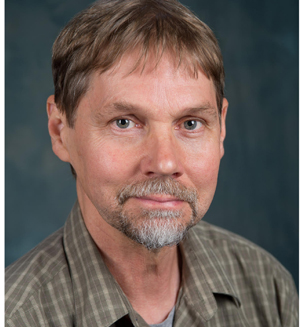 Ted Lewis is a restorative justice trainer and consultant with the Center for Restorative Justice & Peacemaking, University of Minnesota (Duluth). As a practitioner since the mid-1990s, he has specialized in designing resources and training for Victim Offender Conferencing. Since 2004, Ted has provided workshops and reconciliation services to faith-based communities, and recently founded the Restorative Church project. He also serves on the executive committee for the National Association for Community and Restorative Justice (NACRJ).
Ted Lewis is a restorative justice trainer and consultant with the Center for Restorative Justice & Peacemaking, University of Minnesota (Duluth). As a practitioner since the mid-1990s, he has specialized in designing resources and training for Victim Offender Conferencing. Since 2004, Ted has provided workshops and reconciliation services to faith-based communities, and recently founded the Restorative Church project. He also serves on the executive committee for the National Association for Community and Restorative Justice (NACRJ).
Chapter title and short description: Are We Serving Victims Well? Considerations on Victim Engagement in Current Restorative Justice Movement Trends
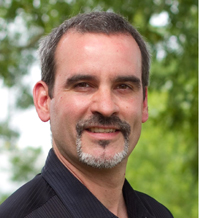 Carl Stauffer, PhD, is Senior Expert-Reconciliation at the United States Institute for Peace (USIP). Prior to this, he was a professor at the Center for Justice & Peacebuilding at Eastern Mennonite University. He served as Co-Director of the Zehr Institute for Restorative Justice, and Academic Director of the Caux Scholars Program in Switzerland. Carl also spent 16 years in South Africa, working with the Truth and Reconciliation Commission and piloting Victim-Offender Conferencing in the Johannesburg courts.
Carl Stauffer, PhD, is Senior Expert-Reconciliation at the United States Institute for Peace (USIP). Prior to this, he was a professor at the Center for Justice & Peacebuilding at Eastern Mennonite University. He served as Co-Director of the Zehr Institute for Restorative Justice, and Academic Director of the Caux Scholars Program in Switzerland. Carl also spent 16 years in South Africa, working with the Truth and Reconciliation Commission and piloting Victim-Offender Conferencing in the Johannesburg courts.
Chapter title and short description: Restorative Justice - Taking the Pulse of a Movement
Starting with an overview of the themes that emerged from the RJ Listening Project in 2017, this chapter makes the case for understanding and studying RJ as a social justice movement.
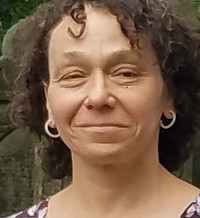 Jill Strauss, PhD, teaches Conflict Resolution at Borough of Manhattan Community College (CUNY). Her research involves Restorative Practices and the visualization of narrative and difficult histories. She incorporates virtual reality technology in her curriculum so students can make hidden histories visible in augmented reality. This project has grown into a collaboration with Mt. Sinai Hospital in New York City. Jill is co-editor of Slavery’s Descendants: Shared Legacies of Race and Reconciliation (Rutgers University Press 2019).
Jill Strauss, PhD, teaches Conflict Resolution at Borough of Manhattan Community College (CUNY). Her research involves Restorative Practices and the visualization of narrative and difficult histories. She incorporates virtual reality technology in her curriculum so students can make hidden histories visible in augmented reality. This project has grown into a collaboration with Mt. Sinai Hospital in New York City. Jill is co-editor of Slavery’s Descendants: Shared Legacies of Race and Reconciliation (Rutgers University Press 2019).
Chapter title and short description: Shared Legacies: Narratives of Race and Reconciliation by Descendants of Enslavers and the Enslaved
This chapter describes Coming to the Table (CTTT), a US based organization that brings descendants of slave holders and the enslaved together to reckon, heal, and take action, often creatively, to address the legacies of slavery and racism.
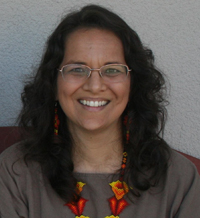 Rose Elizondo Healing, embodiment, and creative transformation are practices Rose Elizondo has brought to her work as a restorative justice movement builder. As a community organizer, she co-founded the San Quentin Restorative Justice Interfaith Roundtable and the North Oakland Restorative Justice Council. As a 2017 Soros Fellow, she facilitated national discourse concerning the indigenous roots of justice and worked with Navajo community leaders to revitalize traditional practices of justice as healing and healing through truth, reconciliation & reparations.
Rose Elizondo Healing, embodiment, and creative transformation are practices Rose Elizondo has brought to her work as a restorative justice movement builder. As a community organizer, she co-founded the San Quentin Restorative Justice Interfaith Roundtable and the North Oakland Restorative Justice Council. As a 2017 Soros Fellow, she facilitated national discourse concerning the indigenous roots of justice and worked with Navajo community leaders to revitalize traditional practices of justice as healing and healing through truth, reconciliation & reparations.
Chapter title and short description: Building a Bigger We: A Conversation about Restorative Justice Movement Building
This chapter engages in a powerful and optimistic conversation that frames a hopeful vision of restorative justice as a healing force that transforms individuals and structures alike.
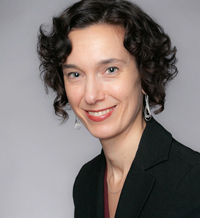 Mika Dashman Mika Dashman is an attorney, mediator and a zealous advocate for restorative justice. In 2015 she founded Restorative Justice Initiative; a citywide, multi-sector network of practitioners, advocates and community members seeking to increase access to restorative justice approaches for all New Yorkers. Mika’s restorative justice teachers include: Lauren Abramson, Kay Pranis, Dominic Barter, Eric Butler, Ray Deal and Sara Whitehorse.
Mika Dashman Mika Dashman is an attorney, mediator and a zealous advocate for restorative justice. In 2015 she founded Restorative Justice Initiative; a citywide, multi-sector network of practitioners, advocates and community members seeking to increase access to restorative justice approaches for all New Yorkers. Mika’s restorative justice teachers include: Lauren Abramson, Kay Pranis, Dominic Barter, Eric Butler, Ray Deal and Sara Whitehorse.
Chapter title and short description: Bringing a Racial Justice Consciousness to the Restorative Justice Movement: A Call to White Practitioners
This chapter was a collaborative effort among six, white-identified RJ practitioners reflecting on the need for white RJ practitioners to engage in anti-racist inquiry and practice and the need for restorative approaches to anti-racism beyond the RJ movement.


